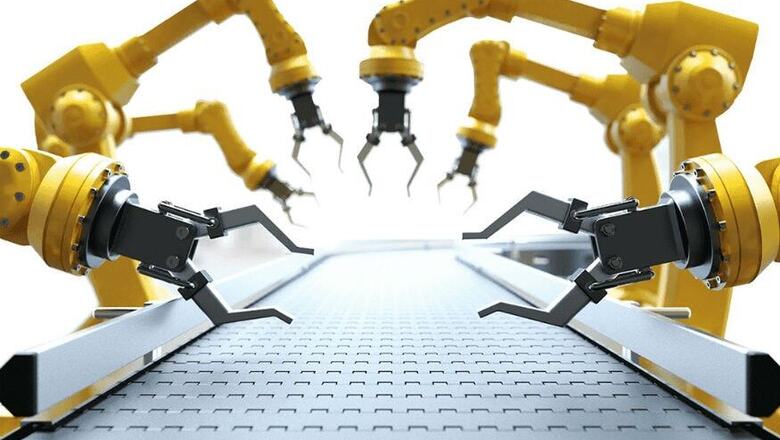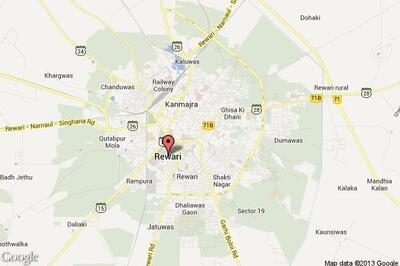
views
The world is still to emerge from the shock of COVID-19, and no scientist, strategist, or economists can put the finger on a particular solution. We have heard about the flattening of the curve, etc. While about COVID-19 and its end date, we are not sure, but the virus, for sure, is a change agent to our habits, living and working.
If we go by estimates presented by various international bodies, we can see a catastrophic impact on jobs, businesses, and governments across the world. According to the WTO, global trade is likely to fall between 13 to 32 per cent in 2020, and every region will suffer a double-digit decline. According to the World Bank, the global GDP is likely to fall between 2.1 and 3.9 per cent. According to the IMF, global growth will fall below -7.4 per cent and, according to their chief economist, the projected global growth in 2020 is likely to fall to – 3 per cent. According to OECD, for every month of lockdown, there will be a loss of 2 percentage points in annual GDP growth. According to ILO, coronavirus is going to impact 2.7 billion workers representing about 81 per cent of the global workforce.
Businesses are facing catastrophic losses and, as on April 1, ILO expects that it will impact equivalent to laying off of 195 million full-time workers in the current quarter, and the final tally for 2020 could be far more. Sectors that employ about 1.25 billion workers, representing 38 per cent of the global workforce, are at risk due to severe decline and will have a risk of workforce displacement, particularly low and middle-income countries. About two billion workers are in informal employment, and most of these are in emerging and developing countries, which will be under financial distress due to the impact of COVID-19. India, where 90 per cent work in the informal economy, about 400 million workers are vulnerable and are likely to slide into poverty.
A few things don’t require assumptions given the reality on the ground, the sentiment emerging from the grim scenario and the uncertainty around the progression of coronavius.
The pandemic has proven that countries with higher GDP are not super-powers. They have suffered equally, if not more, and failed to contain the virus.
COVID-19 will lead to a resetting of the global supply chains, leading to self-sufficient and inward-looking economies the world over. It is the death of globalisation which the US propagated a few decades ago. Also, this being the election year in the US, will fast-track protectionism.
The virus has led to unmasking and unearthing redundancies in the corporate world, and we will be in a more lean and agile world going forward.
Given that large segments of populations in lower and middle-income countries are migrant workers, even if the coronavirus recedes by June, workers are not going to return immediately to cities to work in factories. In fact, given their experience and uncertainty during these times, a section of the workers may stay back with their families in their native places. So, manufacturing, construction, travel and tourism and small entrepreneurs will suffer a significant jolt, and it is not going to return to normal by Q4, 2020.
The governments which are calling upon the people to bear the pain and not giving adequate financial help should be ready for the mass outburst of anger and violence, and it is a real threat not to be taken likely.
One significant change that has happened in this work from home is that business organisations and manufacturing will resort to automation to become independent of such future uncertainties due to such outbreaks. It means, they will resort to automation from reception, assembling to logistics (front end to backend integration). Indiscriminate adoption of automation is where the world faces significant, long-term societal risk. Estimates before COVID-19 have quantified that automation could replace 40 per cent of the total jobs.
According to a World Bank publication, “Smart machines probably won’t kill us all—but they’ll definitely take our jobs, and sooner than you think,” Jim Yong Kim, Chief of World Bank, said in 2016 that, “Research based on World Bank data has predicted that the proportion of jobs threatened by automation in India is 69 per cent, 77 per cent in China and as high as 85 per cent in Ethiopia.”
A few companies which wanted to lay off people but could not are using pandemic as an excuse to lay off people.
Post the COVID-19 shutdown, automation will inevitably get fast-tracked. I think the United Nations should revisit its Sustainable Development goals and correct its mistake by adding another goal, SDG18, ‘Responsible Automation.’ Mad rush for automation will have a cascading effect, and this is not something the world is prepared for, given that we have 7.7 billion humans to cater to and sustain. Responsible automation is where we need a better understanding of the business community and political leadership that, ‘Profits’ with the ‘proliferation of technology’ should not be without ‘people.’
If we keep people out of the equation, the consequences would undermine all other SDGs and, maybe, render them irrelevant. It is time for the United Nations to have the most critical SDG, ‘Sustainable Automation,’ as an ‘intergenerational goal.’ It’s better late than never.

















Comments
0 comment